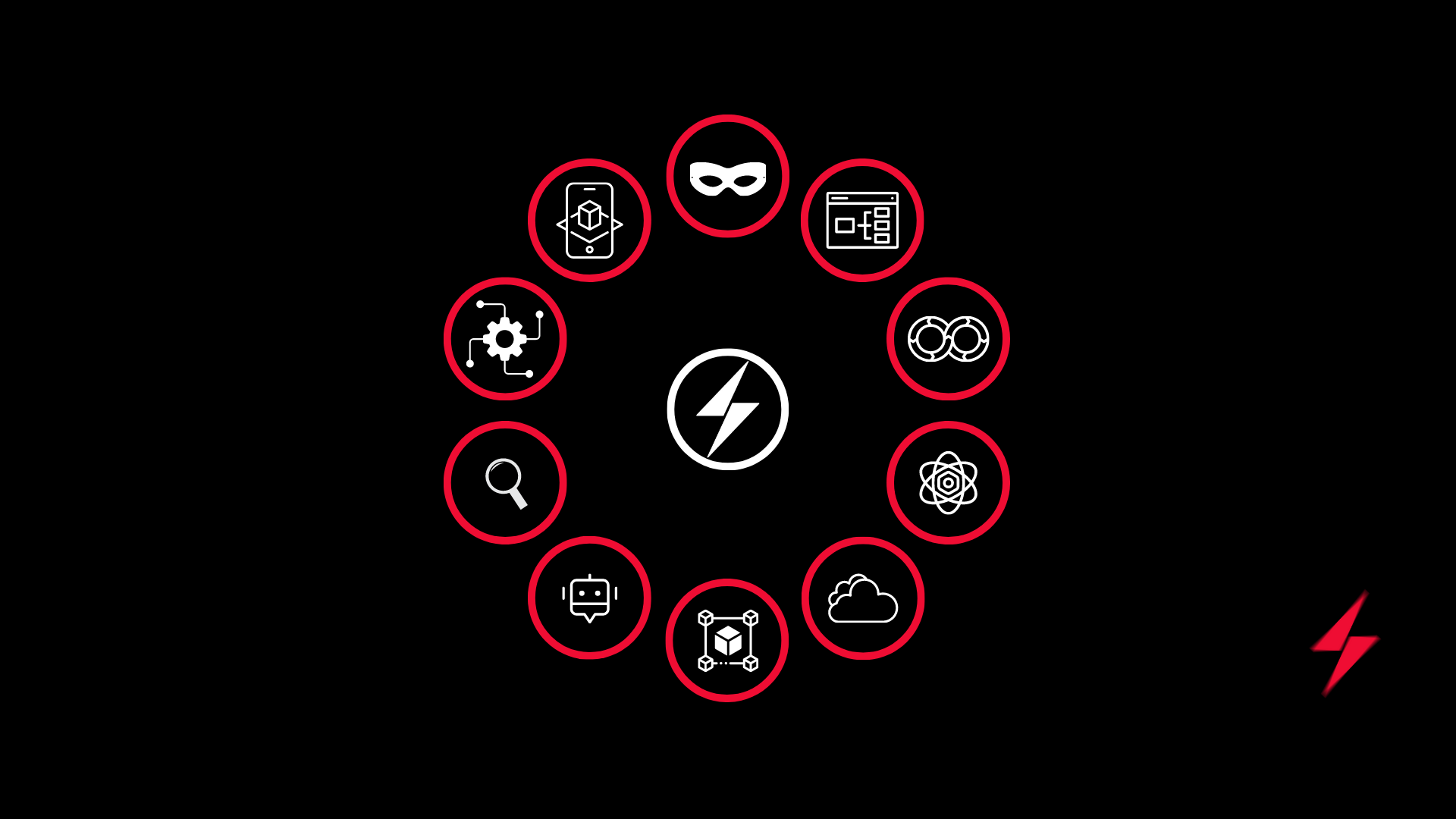Australia has seen a rapid increase in demand for tech talent in recent years, driven by the ongoing digital transformation of industries across the country. The demand for skilled workers has surged across various fields of technology, including cybersecurity, data analytics, cloud computing, and blockchain.
According to a report by the Australian Computer Society, the demand for tech workers has grown by 12% annually in Australia, making it a lucrative field for those seeking employment opportunities. In fact, the report suggests that there will be a shortage of around 60,000 skilled technology workers in Australia by 2023.
In this blog post, we will explore ten tech jobs that are driving digital transformation across various sectors of the Australian economy, from ethical hackers to cloud architects and blockchain developers. These tech jobs not only offer exciting opportunities for those with the necessary skills, but they also play a vital role in shaping the future of organisations in Australia.
1. Ethical Hacker
Ethical hackers, also known as white hat hackers, are cybersecurity experts who use their skills to identify and address vulnerabilities in computer systems and networks.
“Ethical hacking is about breadth and depth. Some hackers are limited to surface-level attacks but can deliver a broad range of capabilities. Other hackers are hyper-specialized in certain types of advanced attack methods. If you specifically want to test your applications, find an ethical hacker well-versed in that realm. If you’re looking to pen-test a variety of systems and devices across your environment, then you’ll want to seek more of a generalist.”
— Avishai Avivi, CISO
Ethical hackers are transforming industries in Australia by helping companies identify vulnerabilities in their computer systems and prevent cyberattacks. By proactively identifying security weaknesses and addressing them, ethical hackers help companies protect their sensitive information and maintain customer trust.
According to a report by Burning Glass, there has been a 90% increase in demand for ethical hackers in Australia in the last five years, with a median salary of $100,000 AUD.
To succeed in this role, candidates must have a strong understanding of programming languages, network protocols, and security tools.
2. User Experience Researcher
UX researchers are responsible for gathering and analysing data to improve the usability and accessibility of digital products and services.
This role has become increasingly important in recent years as companies strive to create user-friendly experiences for their customers. In fact, a report by PwC Australia found that 64% of Australian businesses are investing in improving customer experience, with UX research being a critical component of those efforts.
By conducting user research and testing, UX researchers can identify pain points and areas for improvement, leading to more user-friendly interfaces and better customer satisfaction.
“People ignore design that ignores people.”
– Frank Chimero, Designer
According to Glassdoor, the national average salary for a User Experience Researcher is $100,000 in Australia.
To succeed in this role, candidates must have a deep understanding of user research methods, data analysis, and design thinking.
3. DevOps Engineer
DevOps engineers are responsible for creating and maintaining the infrastructure and tools necessary for software development and deployment.
They bridge the gap between development and operations teams, enabling faster and more efficient software development and deployment. By automating processes and integrating tools, DevOps engineers can help companies achieve faster time-to-market, reduce errors, and improve overall software quality.
In Australia, DevOps is becoming increasingly popular as companies seek to streamline their software development processes and improve collaboration between teams. According to a report by Robert Walters, DevOps engineers are in high demand in Australia, with salaries for these roles rising steadily.
“DevOps adoption means that you are willing to change fast, develop fast, test fast, fail fast, recover fast, learn fast and push the product/features fast to the market.”
– Pavan Belagatti
According to a report by LinkedIn, DevOps is one of the fastest-growing job categories in Australia, with a 33% increase in job postings in 2021.
The average annual salary for DevOps Engineer jobs in Australia, according to SEEK, ranges from $125,000 to $145,000 AUD
To succeed in this role, candidates must have a strong background in software engineering, as well as experience with cloud platforms, automation tools, and agile methodologies.
4. Data Scientist
Data scientists are responsible for collecting, analysing, and interpreting large sets of data to inform business decisions. They use data analysis and machine learning to do this.
By identifying patterns and trends, data scientists can help companies make informed decisions, improve business processes, and gain a competitive edge.
In Australia, data science is a rapidly growing field, with an increasing demand for skilled professionals. According to a report by the ACS, data science is one of the top emerging jobs in Australia, with a projected growth rate of 13.7% over the next five years.
“In the labour market of the future, any decision made without data is just a shot in the dark.”
– Duncan Brown, Economist and Andy Durman, Managing Director
According to a report by SEEK, there has been a 10% increase in demand for data scientists in Australia in the last year. The average annual salary for Data Scientist jobs in Australia ranges from $110,000 to $130,000.
To succeed in this role, candidates must have strong skills in statistics, programming, and machine learning.
5. Cloud Architect
Cloud architects are responsible for designing and managing cloud computing systems and infrastructure. According to a report by CompTIA, there has been a significant increase in demand for cloud architects globally in recent years.
And here’s why: By leveraging cloud computing, companies can reduce costs, increase efficiency, and improve flexibility. In Australia, businesses across various industries are migrating their applications and data to the cloud. Analysts at GlobalData reported that cloud computing spending in Australia will reach $14.1 billion in 2025. This is due to the large-scale digital transformation projects that businesses undertook to combat pandemic-related operational concerns.
“Cloud computing is often far more secure than traditional computing, because companies like Google and Amazon can attract and retain cyber-security personnel of a higher quality than many governmental agencies.”
– Vivek Kundra, former federal CIO of the United States
The average annual salary for Cloud Architect jobs in Australia ranges from $160,000 to $180,000.
To succeed in this role, candidates must have a strong understanding of cloud platforms, infrastructure-as-code, and security practices.
6. Blockchain Developer
Blockchain developers are responsible for designing and implementing secure blockchain systems for various applications. Blockchain is an emerging technology that is gaining traction in industries such as finance, supply chain management, and healthcare.
By creating decentralised and tamper-proof systems, blockchain developers can help companies reduce fraud, streamline processes, and increase efficiency. In Australia, blockchain technology is gaining traction, with the government and various industries exploring its potential applications. According to a report by Deloitte, the adoption of blockchain technology in Australia is expected to increase significantly over the next few years.
“That’s what blockchain’s future looks like. For a while, blockchain will be at the forefront. We look for developers who can create blockchain apps. We look for services that can integrate blockchain apps with non-blockchain data or services that run on incompatible blockchains. We focus on scalability and security. When the revolution comes, it will be because blockchain technology is a mature, stable foundation for the apps and services we want.”
– Kriptomat
According to a report by Hired, blockchain developers are one of the highest-paid tech professionals globally, with an average salary of AUD 144,000 per year.
7. Artificial Intelligence (AI) Trainer
AI trainers are responsible for training machine learning algorithms to improve their accuracy and effectiveness. Boost.ai defines AI trainers as “the linchpin that ensures that the underlying systems of a chatbot can understand how to accurately translate customer queries and requests into actionable outcomes. They are the ones working tirelessly behind-the-scenes to anticipate customer intent so that every interaction with a virtual agent — in everything from banking or telecoms to the public sector — is as smooth and positive an experience as possible.”
“I think that the AI Trainer job is going to be really important going forward, what we see more and more is the virtual agent becoming the core of a company’s customer service strategy.”
– Henry Vaage Iversen, Co-Founder and Chief Product Officer at boost.ai
By training algorithms to recognise patterns and make accurate predictions, AI trainers can help companies automate processes and improve decision-making.
In Australia, the adoption of AI is increasing rapidly, with businesses across various industries investing in AI technologies. According to a report by McKinsey, there is a growing demand for AI talent in Australia, particularly in the healthcare and financial services industries.
According to a report by the ACS, AI is one of the top emerging technologies in Australia, with a projected growth rate of 15.8% over the next five years.
The average salary for an AI trainer in Australia is AUD 117,000 per year.
8. Cybersecurity Analyst
Cybersecurity analysts are responsible for monitoring and protecting computer systems and networks from cyber threats. With cyber attacks becoming increasingly common and sophisticated in recent years, this role has become critical for businesses and organisations across all industries.
“In a world of increasingly sophisticated synthetic media and AI-based cyberattacks, cybersecurity will become less about protecting confidentiality and more about protecting the integrity and provenance of information.”
– Joanna Bouckaert, Community Lead, Centre for Cybersecurity, World Economic Forum
A report by the Australian government revealed that the cybersecurity industry in Australia is projected to grow to $6 billion by 2026, with a projected demand for 18,000 additional cybersecurity professionals by 2026.
The average annual salary for Cyber Security Analyst jobs in Australia ranges from $85,000 to $105,000, according to SEEK.
9. Robotics Engineer
Robotics engineers are responsible for designing, building, and maintaining robotic systems for various applications.
The robotics industry is expected to grow rapidly in the coming years, creating a high demand for skilled professionals in this field. According to a report by the Robotics Australia Group, the robotics industry in Australia is projected to grow to $23 billion by 2025.
“Robotics engineers are at the forefront of developing and implementing robotics technology. They help to design, build, and program robots that can perform tasks more efficiently and effectively than humans, which can improve productivity and reduce costs.”
– Henrik Christensen, Director of Robotics at Georgia Tech
The average annual salary for Robotics Engineer jobs in Australia ranges from $90,000 to $110,000.
10. Augmented Reality Developer
Augmented reality (AR) developers are responsible for creating and implementing AR applications and experiences for various industries, including gaming, education, marketing, retail, and healthcare.
The AR market is expected to grow significantly in the coming years, creating a high demand for skilled AR developers. The global augmented reality market size is expected to reach USD 597.54 billion by 2030, registering a CAGR of 39.8% from 2023 to 2030, according to a new report by Grand View Research, Inc.
“Augmented reality has the potential to transform how we interact with the world around us, and create new opportunities for education, entertainment, and commerce. Developers have a responsibility to design AR experiences that are accessible, inclusive, and respectful of privacy.”
– Cathy Pearl, Head of Conversation Design Outreach at Google
According to a report by MarketsandMarkets, the average salary for an AR developer in Australia is AUD 96,000 per year.
Conclusion
These tech jobs are just a snapshot of the diverse and rapidly evolving world of technology.
They offer exciting opportunities for skilled professionals looking to break into the industry or take their careers to the next level.
Organisations can attract top talent for these roles by showcasing their commitment to innovation, professional development, and providing competitive salaries. With the right talent in place, businesses can leverage these emerging technologies to drive growth, improve efficiency, and enhance the customer experience.
If you’re looking to hire top talent for any of these roles, consider working with ThunderLabs. We’re a tech recruitment firm based in Sydney, and our experienced team specialises in connecting businesses with the best tech professionals in Australia.


